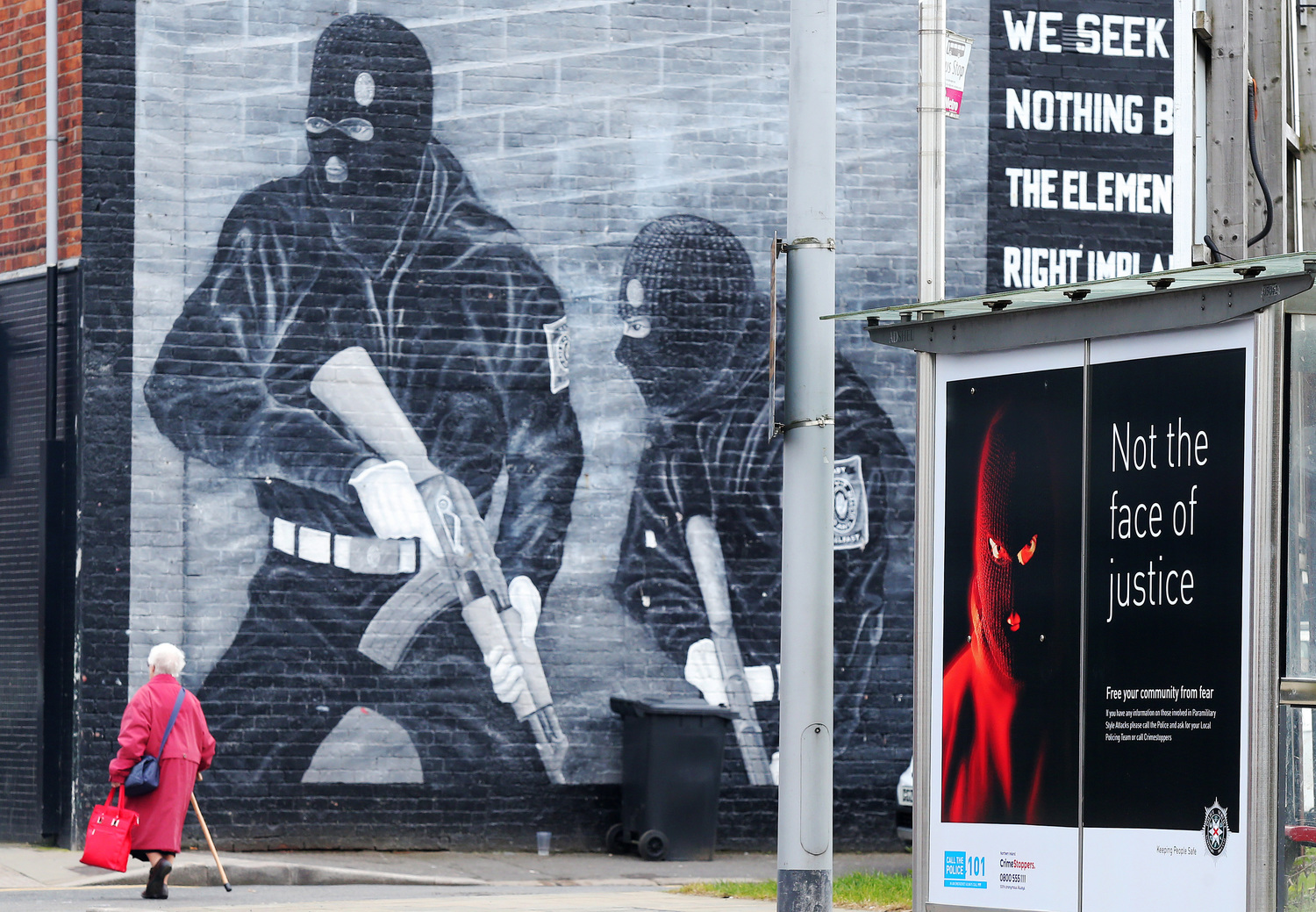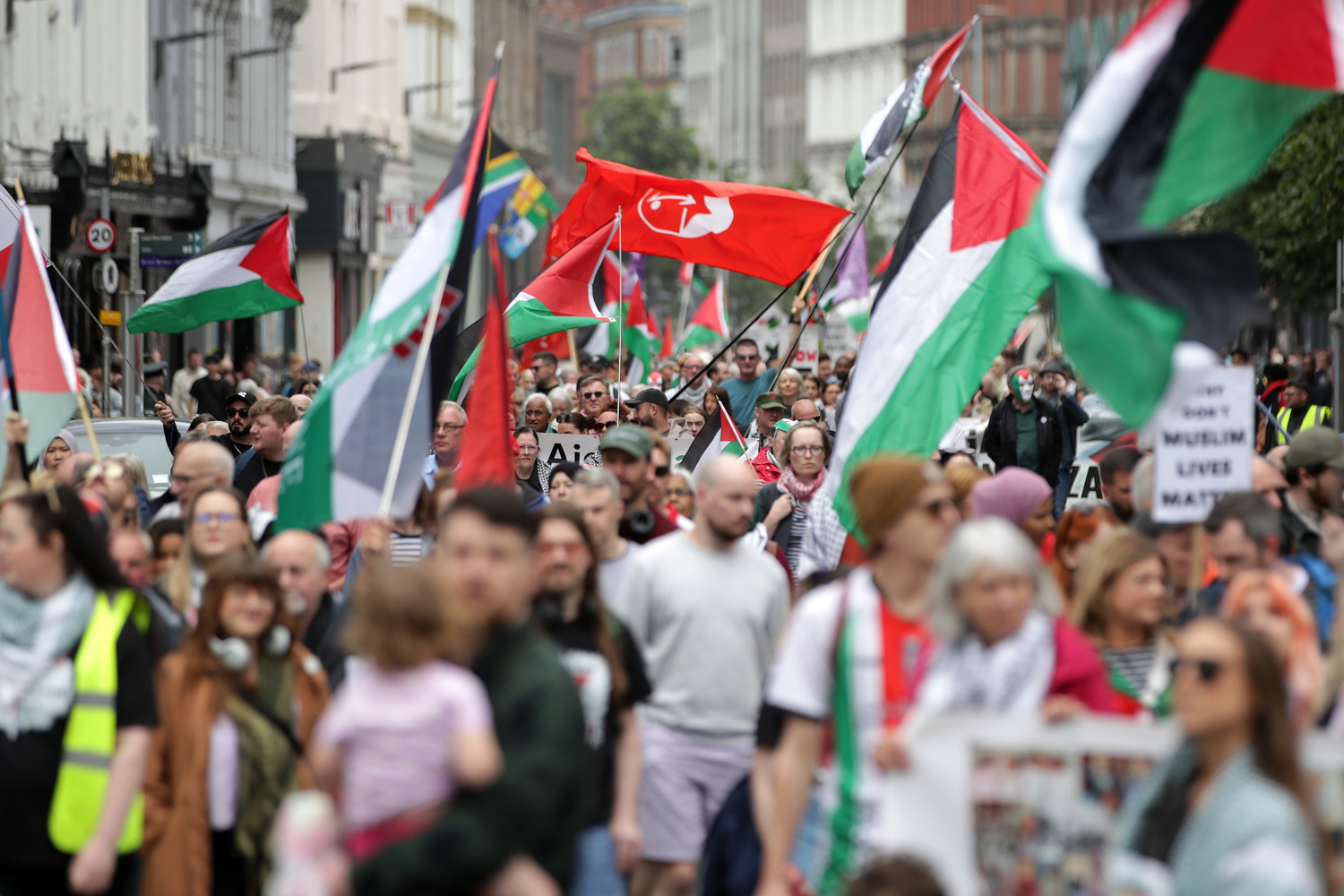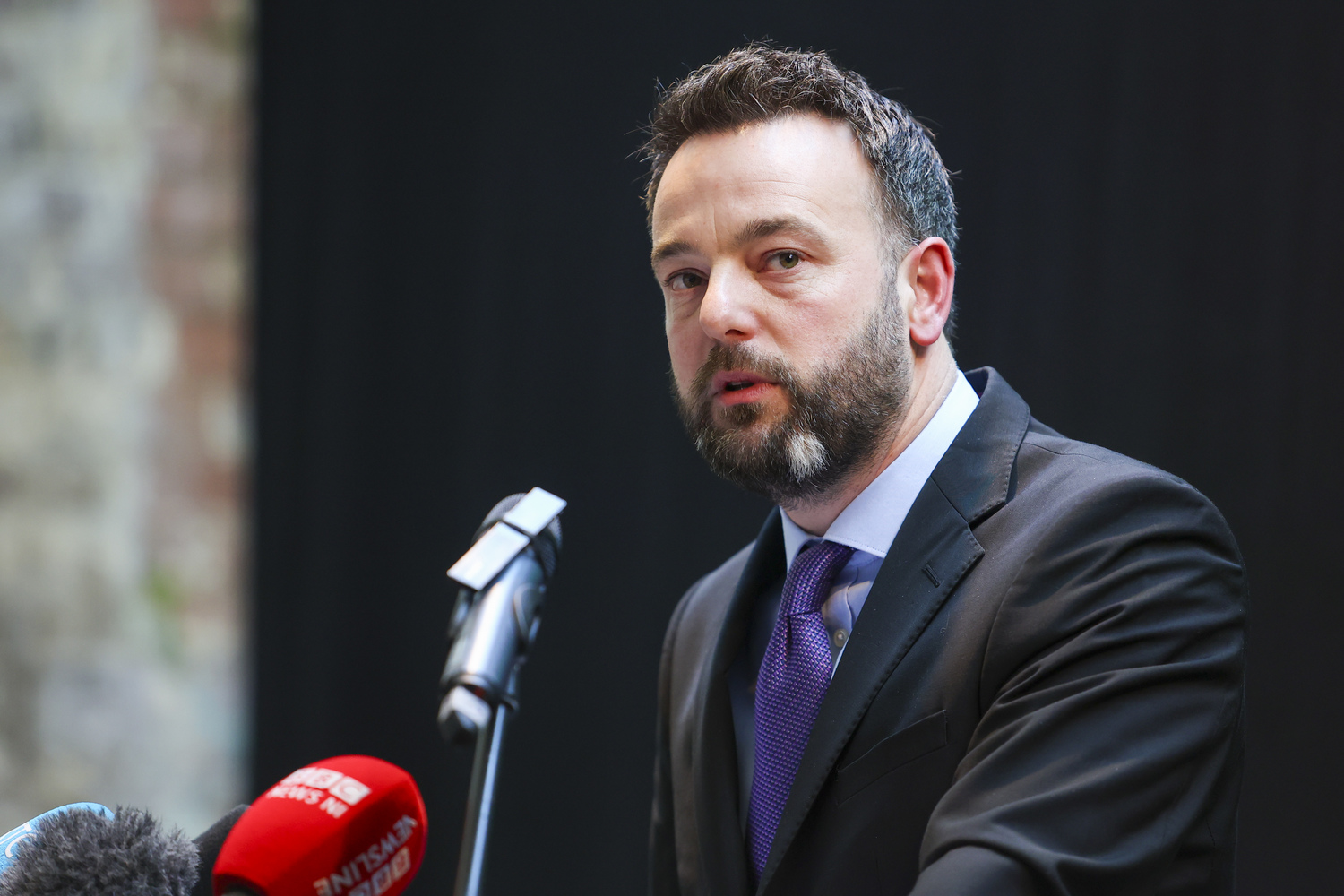The PSNI is facing fresh questions about consistency in policing, as Belfast and Derry prepare for Palestine Action protests on Saturday.
Since Palestine Action was banned in July, the PSNI has made three arrests and sent six files to the Public Prosecution Service (PPS). The cases relate to Section 13 of the Terrorism Act, which makes it an offence to wear clothing or display items that indicate support for a proscribed group.
Over the same period, however, the PSNI took no similar action against public displays linked to proscribed loyalist or republican groups, despite several high-profile incidents.
These included parades honouring UVF killer Brian Robinson in Belfast in September, and another in Portadown in August for Harris Boyle, a UVF member linked to the Miami Showband Massacre.
Both were attended by hundreds of people, with UVF wreaths carried openly.
The UK’s most senior terrorism-law expert told The Detail the “overtly supportive” displays at these events involved clear potential Section 13 offences.
“A display with the letters UVF certainly arouses reasonable suspicion that those responsible are members or supporters of the UVF, a proscribed organisation,” said Jonathan Hall KC, the independent reviewer of terrorism legislation.
“Section 13 Terrorism Act therefore applies. There are no loopholes because the display is floral, or because of clever wordplay if, in the circumstances, reasonable suspicion is aroused.”

Paramilitary flags and murals are common in some parts of Northern Ireland. A UVF mural in east Belfast. File photo by Jonathan Porter, Press Eye
Letters
In addition to arresting Palestine Action supporters, the police have also issued ‘advisory letters’ to 13 individuals in Derry.
The letters, issued mostly to civil rights-era pensioners, warn they may have committed a terrorism offence and invite them for interview.
A ‘Defend the Right to Protest’ rally has been held weekly in Derry since July, where people have held signs stating "I oppose genocide. I support Palestine Action."
Goretti Horgan, a trade unionist and women's rights activist in Derry, said most involved are over 70 and have backgrounds in civil rights and anti-war movements.
“Most of the people doing it are pensioners, for the obvious reason that even an arrest under the Terrorism Act can have an awful impact on the rest of your life,” she said. “So those of us who have already had a good life can do that.”
Ms Horgan was one of nine women who occupied the offices of Raytheon, a US arms manufacturing company, in January 2009, during the Israeli ‘Cast Lead’ assault on Gaza.
All were charged with burglary and criminal damage but were acquitted in court. Raytheon closed its Derry plant in 2010.
“The people protesting against the proscription of Palestine Action are people who have been in the position of Palestine Action,” she said.
“People who have done the kind of work that Palestine Action does were charged, and brought to Crown Courts with quite serious criminal offences, but were able to put up a defence and persuade juries that Israel's war crimes needed to be stopped.”
The case was an inspiration for Palestine Action, co-founder Huda Amouri said in a 2022 interview. Before its proscription the group led a direct-action campaign against Elbit UK, a subsidiary of Israel’s largest weapons manufacturer which describes its drones as “the backbone of the Israel Defense Forces.”
Ms Horgan and her partner Eamonn McCann received letters from the PSNI on 8 August, the day before a planned protest, which was scheduled for the same day as the Apprentice Boys parade, where a band carried a UDA banner.
“It was to scare us off,” Ms Horgan said. “But even the PSNI can see it is ridiculous that they are collecting evidence on us while doing nothing about people carrying the flags of sectarian murder gangs.” The PSNI has confirmed that no advisory letters were sent to supporters of paramilitary groups.
If charged, she intends to launch a judicial review about why there is action against them but not against support of paramilitaries.
“That’s why I think Northern Ireland could be the place where the whole thing falls apart,” she said regarding the Palestine Action ban.
The PSNI confirmed that no advisory letters had been sent regarding displays of support for any paramilitary groups in the four months since Palestine Action was banned.
The only other action taken in relation to a Section 13 offence since July was the arrest of man in Derry for carrying a flag displaying the images of Hezbollah and Hamas.
A PSNI spokeswoman said its “role is to apply the law fairly and proportionately, regardless of the issue or organisation involved. The proscription of groups is a matter for Government; police act to ensure public safety and uphold the law.
“We are clear that people have a right to protest and express their views, and we will continue to facilitate that. We simply ask that those taking part do so peacefully and within the law, so that everyone can make their voices heard safely.”
Consultation
Colum Eastwood, SDLP MP for Foyle, said that the disparity in the police approach was stark.
He said Palestine Action has little presence in Northern Ireland, while local paramilitaries engaged in “racketeering, drug dealing and extortion continue and these people hold their communities to ransom.”
In recent months paramilitary activity has included threats against council workers over bonfires and Irish language signage, and the targeting of Catholic and migrant families in north Belfast.
Mr Eastwood, who has raised the matter in Parliament, also criticised the Home Office for failing to consider Northern Ireland’s unique policing and political context before banning Palestine Action.
“This is a total dereliction of duty when policing is so sensitive here," he said.
The Department of Justice and the Executive Office told The Detail they were “not consulted or asked for any input” regarding the decision to proscribe Palestine Action.
The PSNI pointed to a statement by Deputy CC Bobby Singleton to the Policing Board in September, where he said “we had no role in the decision to proscribe (Palestine Action).”
The UK government relied on a number of reports before introducing the ban. This included a community impact assessment, where officials warned of the impact on Jewish and Muslim communities, but which made no mention of the situation in Northern Ireland.
The Home Office has said that Palestine Action met the relevant tests for proscription and that enforcement of related offences is an operational matter for police forces, including the PSNI.
Daniel Holder of the Committee for the Administration of Justice (CAJ) said that, alongside concerns about disparity in policing of proscribed groups, “there is a specific concentration of Palestinian solidarity activities within nationalist communities”, and PSNI enforcement actions “risked discriminatory impact against nationalists.”
“Whilst there are persons engaged in Palestinian solidarity activities here who are Protestant, Jewish, Muslim – there is a specific concentration of Palestinian solidarity activities within nationalist communities, with by contrast support for Israel higher among unionists,” he said.
“This is evident even from as simple an indicator as the locations of Palestinian and Israeli flags.”
A legal challenge to the UK’s decision to ban Palestine Action is set to be heard next week.
 By
By

